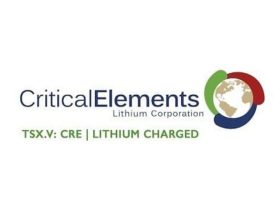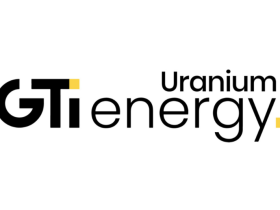The S&P/TSX Venture Composite Index (INDEXTSI:JX) continued its slide to close last week at 559.4.
Statistics Canada released its real GDP figures for the month of July on Friday (September 29). Overall growth remained flat at 0 percent, and only nine out of 20 sectors saw growth during the period. Among those were the mining sector, which saw 4.2 percent growth, and the oil and gas sector with growth of 1.5 percent. Preliminary estimates for August show that the country is on track for improvement, with real GDP forecast to increase by 0.1 percent for that month.
Meanwhile, across the border in the US, markets were impacted by news that a government shutdown is increasingly likely.
Against that backdrop, a variety of TSXV-listed resource stocks made moves over the last five days. Read on to find out which companies rose the most during the period and what was affecting their share prices.
1. NorthIsle Copper and Gold (TSXV:NCX)
Weekly gain: 36.11 percent; market cap: C$52.17 million; current share price: C$0.245
NorthIsle Copper and Gold is a Vancouver-based company focused on developing sustainable projects. Its North Island project is located on the northern part of Vancouver Island in BC, Canada, where it sits on a 33,000 hectare mineral claim with deposits of copper, gold, molybdenum and rhenium.
NorthIsle’s share price surged last Wednesday (September 27) to C$0.26 following the release of assays for one core from a 2023 drill program at North Island’s Northwest Expo target. The core includes the highest grade and thickness result drilled at the site to date: 130 meters grading 1.65 grams per metric ton (g/t) gold and 0.33 percent copper, including 72 meters at 2.22 g/t gold and 0.41 percent copper and 15 meters at 3.42 g/t gold and 1.15 percent copper.
2. Condor Resources (TSXV:CN)
Weekly gain: 32.08 percent; market cap: C$41.6 million; current share price: C$0.35
Condor Resources engages in precious and base metals exploration in Peru using a project generator model. The company has an active portfolio of 12 targets and four joint venture agreements in place. Seven of its projects are 100 percent owned by the company, and two currently have drill programs underway.
Condor has performed strongly this year and surged significantly on June 23, when it received a payment from Chakana Copper (TSXV:PERU,OTCQB:CHKKF), which has an option to earn a 100 percent interest in Condor’s Soledad project over 4.5 years.
Although it did not release news last week, Condor reached a weekly high of C$0.35 on Thursday (September 28).
3. Lithium Energi Exploration (TSXV:LEXI)
Weekly gain: 30.77 percent; market cap: C$25.85 million; current share price: C$0.17
Lithium Energi Exploration is focused on the acquisition, exploration and development of lithium brine assets in Argentina. Its portfolio consists of 72,000 hectares within Argentina’s section of the Lithium Triangle, which it is actively exploring.
Lithium Energi’s share price traded higher this past week, reaching a peak of C$0.175 on Thursday following news that the company is responding to interest from multiple potential acquirers and has formed a special committee to initiate a strategic review process to evaluate its full range of options, including “equity market transactions, disposition of certain assets, or a potential sale or merger.”
4. VVC Resources (TSXV:VVC)
Weekly gain: 28.57 percent; market cap: C$44.7 million; current share price: C$0.09
VVC Resources is nearing the start of production at Gloria, its copper asset in Mexico, which has an indicated copper resource of 59.4 million pounds. The company also has seven helium and natural gas projects throughout the US, along with a 14 percent stake in Proton Green, which specializes in the production of helium and carbon dioxide.
Shares of VVC traded up this past week, hitting a weekly high of C$0.09 on Thursday. The company did not release news during the period, but may have been buoyed by a rise in the copper price.
5. Phenom Resources (TSXV:PHNM)
Weekly gain: 28 percent; market cap: C$28.55 million; current share price: C$0.32
Phenom Resources is a gold and vanadium exploration company that wholly owns the Carlin gold-vanadium project in Nevada and the West Jerome copper project in Arizona. The company’s Carlin project lies within the Carlin Gold Trend, where past mining has produced more than 9 million ounces of gold across multiple sites. The project was first explored in the late 1960s by Union Carbide, which defined a vanadium resource that Phenom claims has since become North America’s largest and highest-grade primary vanadium deposit.
Shares of Phenom rose this past week, hitting C$0.32 at the end of trading on Thursday. This continued an upward trend that started after the company announced on September 19 that it would begin drilling at its Carlin site on October 1. Phenom has been working with Dave Mathewson, formerly of Newmont (TSX:NGT,NYSE:NEM) and a specialist on the Carlin Gold Trend. Mathewson discovered significant deposits in the area throughout the 1990s.
FAQs for TSXV stocks
What is the difference between the TSX and TSXV?
The TSX, or Toronto Stock Exchange, is used by senior companies with larger market caps, while the TSXV, or TSX Venture Exchange, is used by smaller-cap companies. Companies listed on the TSXV can graduate to the senior exchange.
How many companies are listed on the TSXV?
As of September 2023, there were 1,713 companies listed on the TSXV, 953 of which were mining companies. Comparatively, the TSX was home to 1,789 companies, with 190 of those being mining companies.
Together the TSX and TSXV host around 40 percent of the world’s public mining companies.
How much does it cost to list on the TSXV?
There are a variety of different fees that companies must pay to list on the TSXV, and according to the exchange, they can vary based on the transaction’s nature and complexity. The listing fee alone will most likely cost between C$10,000 to C$70,000. Accounting and auditing fees could rack up between C$25,000 and C$100,000, while legal fees are expected to be over C$75,000 and an underwriters’ commission may hit up to 12 percent.
The exchange lists a handful of other fees and expenses companies can expect, including but not limited to security commission and transfer agency fees, investor relations costs and director and officer liability insurance.
These are all just for the initial listing, of course. There are ongoing expenses once companies are trading, such as sustaining fees and additional listing fees, plus the costs associated with filing regular reports.
How do you trade on the TSXV?
Investors can trade on the TSXV the way they would trade stocks on any exchange. This means they can use a stock broker or an individual investment account to buy and sell shares of TSXV-listed companies during the exchange’s trading hours.
Data for this 5 Top Weekly TSXV Performers article was retrieved on Thursday after market close using TradingView’s stock screener. Only companies with market capitalizations greater than C$10 million prior to the week’s gains are included. Companies within the non-energy minerals and energy minerals are considered.
Article by Dean Belder; FAQs by Lauren Kelly.
Securities Disclosure: I, Dean Belder, hold no direct investment interest in any company mentioned in this article.
Securities Disclosure: I, Lauren Kelly, hold no direct investment interest in any company mentioned in this article.





